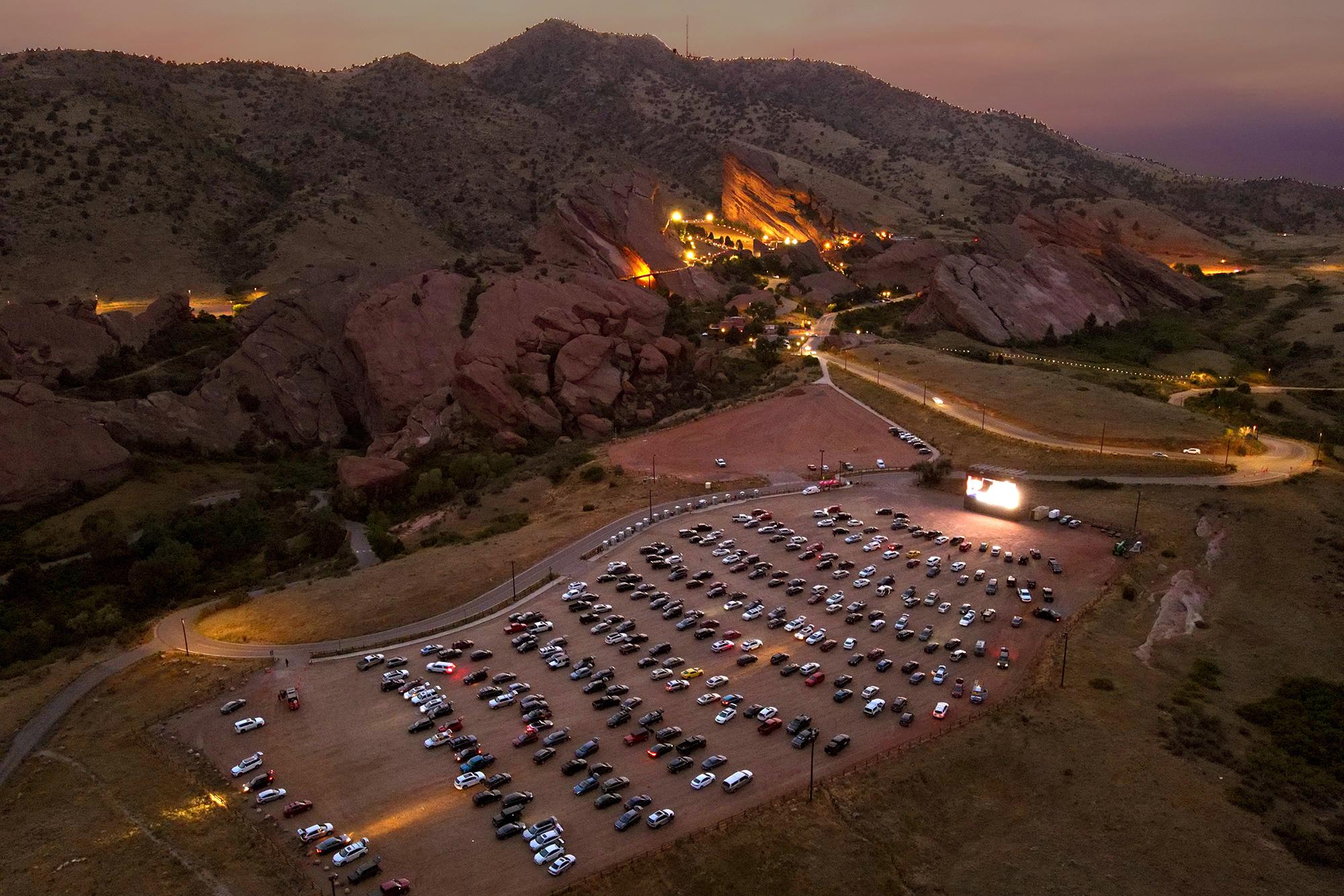
Like many other in-person arts events this year, the Denver Film Festival is going to look different for its 2020 edition.
The long-running festival, now in its 43rd year, will not host the usual long lines funneling into crowded theaters or its late-night afterparties. Instead, its audiences and filmmakers will be staying safely at home anywhere in Colorado, watching movies together but separately.
“It took most of the summer to research and discuss how we would pull off the film festival,” artistic director Matthew Campbell said. “It’s not appropriate to have in-person events, so it will be all virtual, all online outside of the three drive-in screenings. But on the online platform, we will have Q&As with filmmakers. We will have awards presentations. It’s still going to have that festival atmosphere to it.”
Campbell first joined the Denver Film Festival as an intern back in 2009. He’s seen the festival grow and grow-up over the years. Because of the coronavirus pandemic, the fest needed to grow in a new direction: virtually.
“We kept going back and forth,” he said. “Will it be a hybrid? Will we be able to do this or that? And as this went along, it became clearer and clearer that just wasn’t viable this year.”
Campbell and the festival team made the decision this summer to pivot to virtual screenings. It was understandable but disappointing news for Marissa Poppens, a longtime volunteer for the festival since 2008.
“It’s one of the things I look forward to every year,” she said. “It hurts my heart that I don’t get to volunteer, but I’m excited that they’re still able to have an event and showcase some amazing films.”
Director Chelsea Christer was also excited for this year’s Denver Film Festival. The Loveland, Colorado, native was looking to bring her first feature “Bleeding Audio” back to her home state. Her documentary follows the punk band the Matches from their scrappy roots in Oakland, California, through their mismanagement in the music industry just as online streaming took off, decimating record sales.
When Christer first started talking to the Denver Film Festival programmers, they had talked about bringing the Matches in for the screening and to give a show. Now, she’s showing her film in another wave of digital change.
“I could be honest, it's kind of devastating,” Christer said. “I've been working on this film for six years and the thing that's gotten me through the ups and the downs of the project was knowing that at the end of this tunnel was the opportunity to screen it in a theater with a bunch of people.”
Christer said she creates art to give it to others and to get their energy back.
“I have just been dreaming of that day just for a global pandemic to hit literally the same week as our world premiere,” she said.
But the shift towards virtual screenings appealed to James Mejia, the new CEO of Denver Film, the organization that oversees the festival. He took the reins just as the festival moved to online and drive-in events.
“Our virtual platform we created to show films because our theater was closed down,” he said. “Whether we're in a pandemic environment or not, being on a virtual platform is going to be very important for us well into the future.”
However, Mejia said he also appreciates the experience of seeing movies with an audience and saw firsthand how attendees responded to Denver Film’s drive-in screenings at Red Rocks this summer.
“There was such a pent-up demand,” he said. “You have the majesty of being in Red Rocks Park, the visual and scenic beauty of being up in our foothills. It was so much fun seeing families activated, talking about the movie and honking horns — just enjoying it.”
Campbell is also thinking about the future and how the festival and the Sie Film Center’s year-round programming can thrive in the pandemic age.
“This whole year has been nothing but pivoting, learning and growing. Who knows? Next year, it might be more of this, it might be back,” Campbell said. “A lot of it is out of our hands. The way that the industry goes, we aren’t in control of that.”
Because of the festival’s shift to digital, much of the festival’s program is geoblocked to the state, which means outsiders can’t snap up all the tickets, but anyone within its borders can watch the festival’s lineup of over 80 features and 50 shorts from Oct. 22 through Nov. 8.
“It’s really for all of Colorado,” Campbell said. “It’s never been more accessible, and it’s never been more inclusive.”
Editor's Note: An earlier version of this story misspelled Marissa Poppens' surname.








